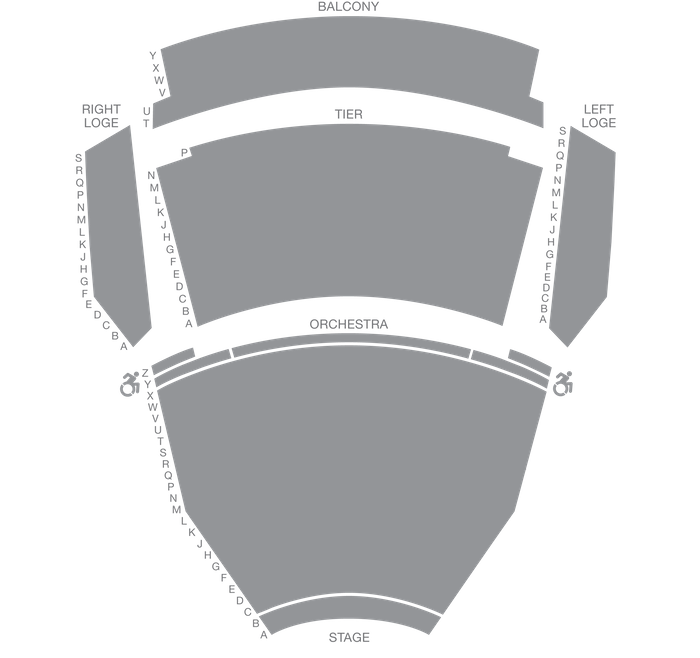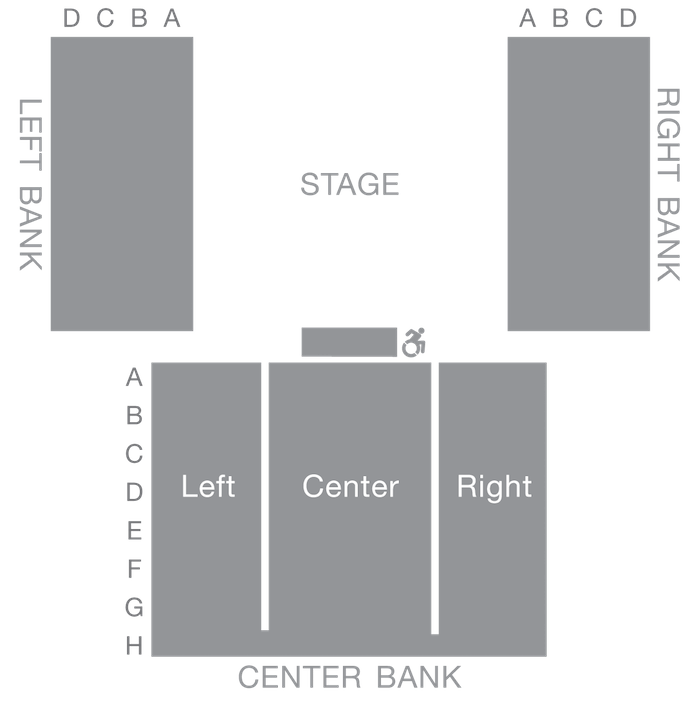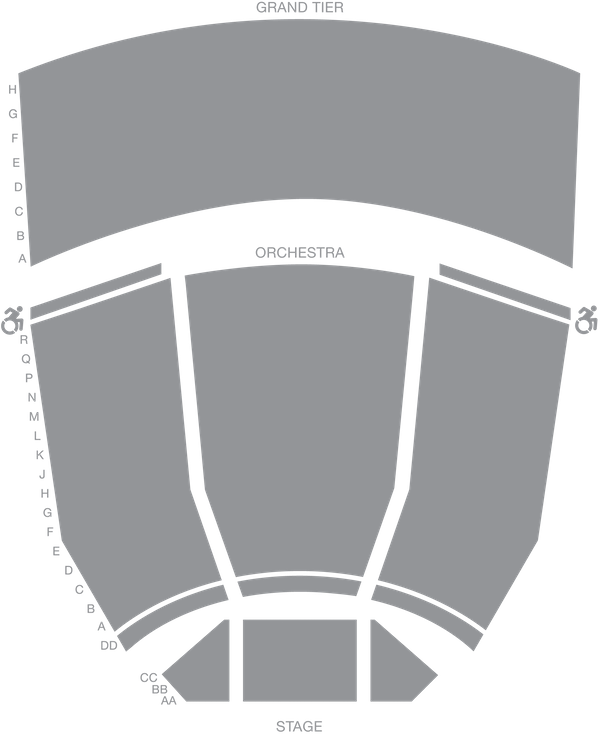
Our Mission
TPAC champions excellence in the performing arts and arts education, fosters support for our resident companies and community partners, and serves as an inclusive place for all to enjoy meaningful and relevant experiences that enrich lives and promote economic vitality.
Our Core Values
INCLUSION
We intentionally embrace and promote inclusion across every level of our organization, welcoming all people, programs, audience, and partners to reflect the increasingly rich diversity of our community. We openly address inequities as we work to change our own institution and strive to provide access to everyone along the continuum of human ability and experience.
CREATIVE EXCELLENCE
TPAC readily recognizes that artistic excellence provides new insights of the world around us, leading us to question and appreciate what we have never experienced. Excellence in the arts occurs when an experience affects and changes us in novel ways, providing both fresh and relevant perspectives.
INNOVATION
We strive to pioneer and implement new and creative ideas in our work, both on and off the stage. We recognize innovation inherently includes risk-taking and experimentation, but we remain steadfast to pursue new frontiers for TPAC with courage tempered by humility.
COLLABORATION
We foster thoughtful, respectful relationships between fellow board members, staff, patrons, resident companies, and community partners from all walks of life. We commit to honest communication, transparency, and trustworthy interactions. Moreover, we recognize the power of blending unique perspectives to spark new ideas and creativity that make TPAC a stronger institution.
PURPOSEFUL SERVICE
We believe in developing an internal culture of service that encourages individual paths of direct impact and influence for our community’s development. We support an environment of professional development, information sharing, and diverse perspectives to provide staff and board members the resources for hands-on service to each other and our greater community.
Our Story
Operating in the James K. Polk Cultural Center in downtown Nashville, TPAC® is dedicated to providing and supporting the presentation of the performing and cultural arts.
Founded in 1980, TPAC serves several hundred thousand audience members each year. Performances include the HCA Healthcare/TriStar Health Broadway at TPAC series; purposefully-curated series in Dance, Theatre, and Family programming; a wide variety of special engagements, and the productions of three resident artistic companies – Nashville Ballet, Nashville Opera, and Nashville Repertory Theatre.
In addition, TPAC administers one of the largest and most comprehensive arts education programs in the United States, serving students from pre-school to high school, educators, and adults.
Over more than four decades, TPAC has welcomed more than 14 million audience members and served more than 2 million students, educators, and adults with performances, teacher resources, professional development opportunities, classroom residencies, and enrichment programs.
TPAC manages four performance venues, including Andrew Jackson Hall, James K. Polk Theater, and Andrew Johnson Theater, and War Memorial Auditorium, a historic concert hall located across the street from the center.
Dreaming of opportunities in the arts and a well-rounded education for their children and grandchildren, private citizens led by Martha Ingram proposed an arts center for the citizens of Tennessee to the state legislature in 1972.
After a private fundraising effort established an endowment, the state approved funding for the center, built in conjunction with the James K. Polk State Office Building and the Tennessee State Museum.
Prior to the September 1980 dedication, the legislature created the TPAC Management Corporation to oversee the public-private partnership. It charged the unique nonprofit organization with providing affordable performance spaces for resident artistic companies and offering educational experiences in the arts for Tennessee school children.
During that first 1980-81 season, TPAC presented 119 performances for a total attendance of 84,000. The center was strengthened by the traditions of TPAC’s first two resident companies: Nashville Symphony, founded in 1946, and Circle Players, a community theater founded in 1949.
Three professional companies took residence at TPAC within the next five seasons: Nashville Opera, Nashville Repertory Theatre, and Nashville Ballet.
TPAC established Humanities Outreach in Tennessee (HOT) in 1983, receiving the Governor’s Award for Artistic Excellence the next year. Now called TPAC’s Season for Young People, this nationwide model for arts education programming has served children from the state’s 95 counties. Following an operational merger with the Nashville Institute for the Arts in 2000 and decades of expansion, TPAC currently provides several signature arts education programs, including Wolf Trap Early Learning Through the Arts (which engages pre-school children), TPAC InsideOut (which enriches the theatre-going experience for adults), Disney Musicals in Schools (which creates sustainable theatre programs in disadvantaged schools, and Spotlight Awards (which honors the talents of high school theatre students). In addition, TPAC offers a variety of professional development opportunities for teachers.
TPAC Today
Nashville is now a major market for Broadway touring productions, and TPAC presents a variety of special engagements from iconic performers, musicians, comedians, dance companies, and more.
Nashville Ballet, Nashville Opera, and Nashville Repertory Theatre remain in residence at TPAC, following the 2004 departure of Circle Players and the 2006 construction of a new hall for the Nashville Symphony.
For some, TPAC is a dream come true. For others, it’s a gathering place for friends and families waiting to enjoy time and the arts together. A place to laugh or experience live theatre and music, TPAC is also good for the economy — attracting industry, creating jobs, increasing business downtown, and generating revenue.
Together, artists, audiences, administrators, educators, and supporters carry the mission of TPAC into the years ahead. We welcome you to visit us and become part in our ongoing story of growth, success, and service.
Our Commitment to Diversity, Inclusion, Access & Equity
Tennessee Performing Arts Center is committed to being a welcoming and respectful organization through which everyone can share and enjoy meaningful arts experiences. We believe the arts must reflect the society which produces and experiences them and that we are made richer through the creation, presentation, and celebration of diverse stories that are representative of the full, exquisite beauty of the human experience.
As we chart a new course toward a more fair and equitable society through the arts, TPAC has launched initiatives like the Arts Access Program, with support from Amazon, helping more than more than 500 Tennesseans from diverse communities experience the performing arts for the first time this season, and the TPAC Internship Program to recruit diverse college students to administrative careers in the arts and cultivate the next generation of arts professionals. TPAC’s community connections continue to expand with newly launched initiatives that have engaged more than 20 organizations in an effort to further our reach as a cultural pioneer that believes in the arts for all people.
Land Acknowledgment
Tennessee Performing Arts Center (TPAC) acknowledges the land upon which it presents arts experiences once belonged to the prominent Indian tribes of Cherokee, Shawnee, and Chickasaw in what is now the State of Tennessee. When we gather together, we honor the Indigenous peoples, their continuing legacy, and their deep connection to the land and its resources and respect those who carry, protect, and maintain the cultural values and traits of their culture while navigating the barriers and challenges of the dominant/majority culture. We know it is our obligation to acknowledge and revere the culture and experience of those to whom who this land once belonged.




















